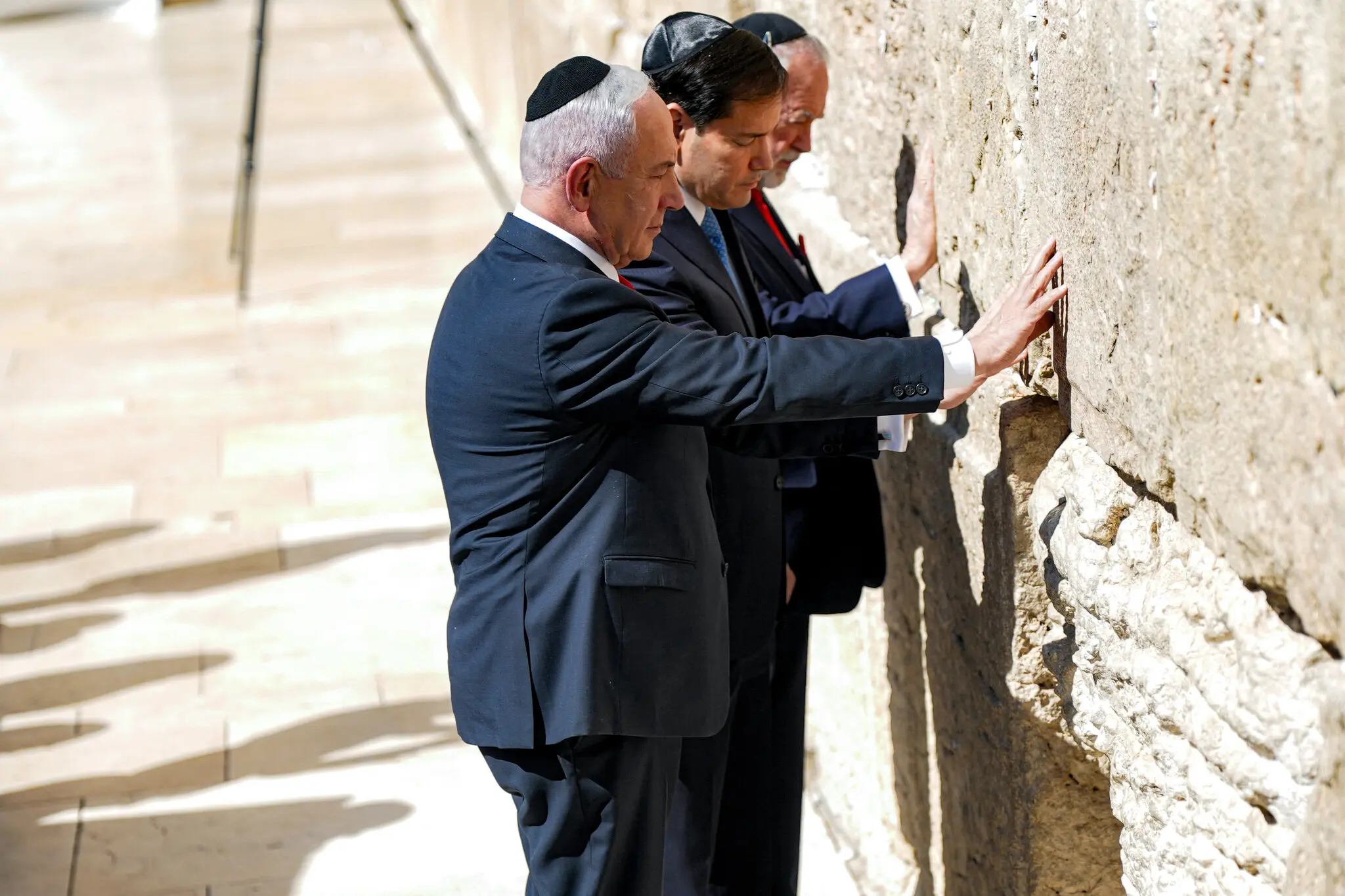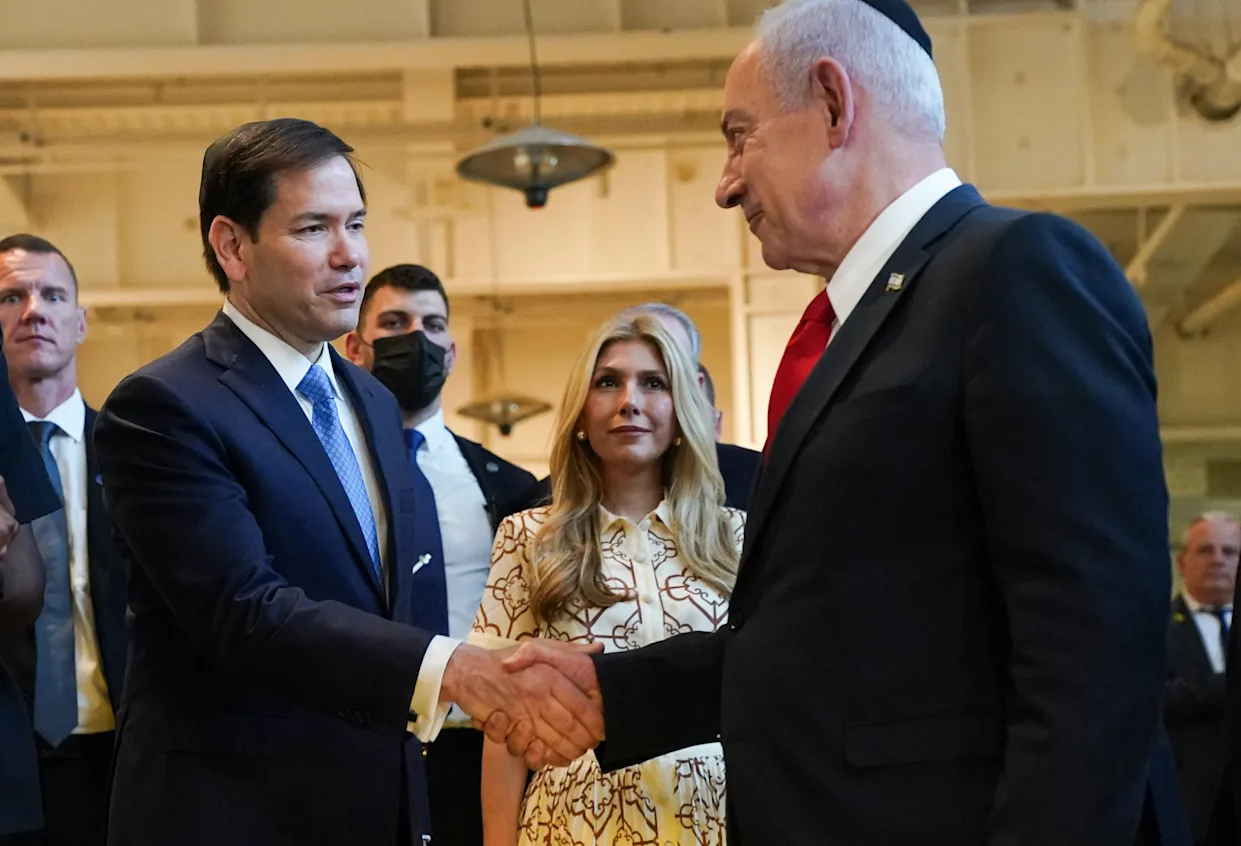Rubio: Diplomatic Settlement to Gaza War May Not Be Achievable, Speaking from Israel
15.09.2025
Rubio Meets Netanyahu in Israel Amid Gaza War Tensions
Diplomatic Hopes in Doubt
U.S. Secretary of State Marco Rubio held talks in Israel with Prime Minister Benjamin Netanyahu to address President Trump’s call for a swift end to the conflict in Gaza. However, Rubio expressed skepticism that diplomacy could achieve Hamas’s surrender, remarking during a joint news conference on Monday that a negotiated end to the war may not be realistic.
Standing beside Netanyahu, Rubio’s message contrasted with Trump’s earlier optimism, when the president suggested a cease-fire might be achieved “very soon.” While reaffirming America’s commitment to pursue peace, Rubio insisted that Hamas — “a terrorist, barbaric organization determined to destroy Israel” — could not be expected to agree to terms.
Shared Positions with Israel
Rubio’s remarks aligned closely with Netanyahu’s stance. The Israeli leader reiterated that Hamas must be eliminated and emphasized his preference for the group’s surrender over continued fighting. Still, he avoided details about ongoing negotiations.
Rubio clarified that President Trump’s priority remained bringing the war to an end, securing the release of hostages, and ensuring Hamas’s defeat. Israel estimates around 20 hostages are still alive in Gaza.
Strains Between Trump and Netanyahu
The discussions came against a backdrop of tensions between Washington and Jerusalem. Critics accuse Netanyahu of dragging out the war for political gain, while Trump has been frustrated by Israel’s recent strike against Hamas leaders in Qatar, a U.S. ally. Despite differences, both leaders projected unity at the press conference. Netanyahu emphasized the enduring strength of the U.S.-Israel alliance, though questions remain about how fully he and Trump agree on the war’s direction.
Rubio is expected to continue his Middle East tour with a stop in Qatar, which has served as a mediator in cease-fire negotiations.

Escalation in Gaza
Meanwhile, Israel is preparing for a large-scale offensive in Gaza City, considered Hamas’s last major bastion. Over the weekend, the Israeli military stepped up airstrikes, demolishing several high-rise buildings. Reports indicate more than 300,000 Palestinians have already fled the city in recent weeks under evacuation orders, raising fears of worsening humanitarian conditions.
U.N. relief officials warned of a dire crisis as displaced civilians crowded into southern Gaza. “No one is safe in Gaza,” wrote Philippe Lazzarini, head of the U.N. agency for Palestinian aid, underscoring the desperation of families forced to abandon their homes.
Divergent Approaches to Diplomacy
Both Rubio and Netanyahu rejected growing international calls for recognition of a Palestinian state. Nations such as Britain, France, and Canada have recently signaled support for the initiative, but Rubio dismissed it as purely symbolic and potentially emboldening Hamas. Netanyahu, who has vowed that no Palestinian state will be established, echoed this rejection.
Before departing Washington, Rubio had said he would raise concerns about Israel’s strike in Qatar. Yet during the news conference, he chose to focus instead on current challenges and emphasized America’s intent to keep Qatar engaged as a mediator.
Israel’s Uncompromising Message
Netanyahu maintained that Israel would track down Hamas leaders wherever they hide, defending the Doha strike as part of Israel’s ongoing campaign. “You can run, but you cannot hide — we will find you,” he declared.
He also paid tribute to Charlie Kirk, the U.S. conservative activist recently assassinated in Utah, calling him a staunch ally of Israel who had even advised him on defense matters.





